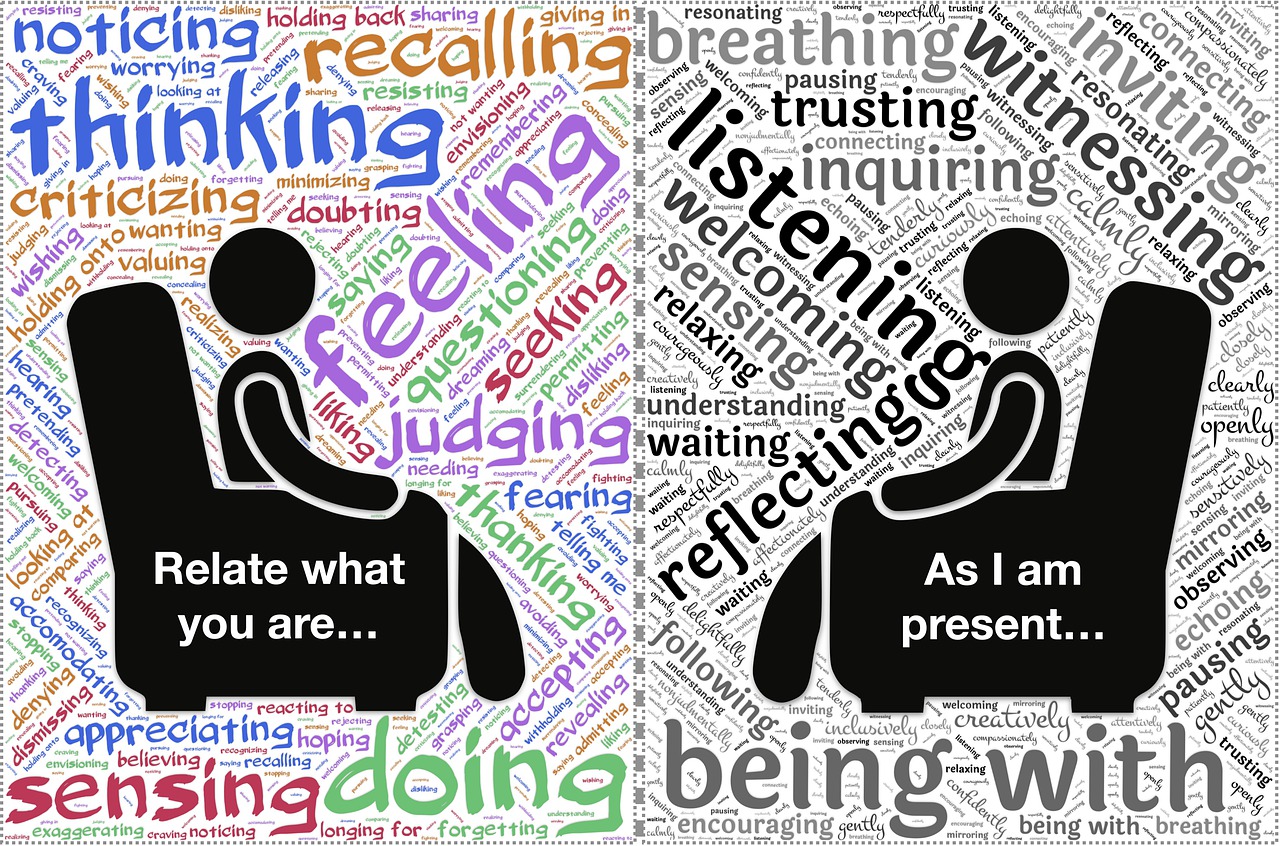How to Maintain a Relationship

Relationships are formed with friends, coworkers, family, and romantic partners. Having healthy relationships provides substantial benefits to our lives, including our health, but it is essential to learn how to maintain a relationship to reap the rewards.
Learning how to have a good relationship takes work, but in the end, your connection will be strengthened and enhanced to form a lasting bond that all parties will cherish.
The level of connection may vary between family relationships and romantic partners. However, the nurturing feelings of empathy and love apply to all relationships, and there are easy ways to reinforce these emotions.
Relationship Tips 101
To build a home that will withstand disasters like earthquakes, it must have a strong foundation, and relationships are the same. So, when we ask how to maintain a relationship, we must first start by building a solid core, and that only comes through concrete communication.

- Communication — When we communicate, it involves more than just talking to each other; we must also genuinely listen. Ways to communicate more effectively include:
- Process your feelings first — This step is essential when you’re seeking to learn how to have a good relationship, especially if the conversation is about something vulnerable or upsetting. To share more effectively without getting overly emotional, try to calm yourself down and collect your thoughts. Some helpful ways to accomplish this include the following:
- Clear the mind by listening to relaxing music
- Take a walk
- Meditate using relaxation techniques
- Avoid passive-aggressive behavior — When someone hides their anger, it often comes out in passive-aggressive actions at a later date, which is not a good example of how to maintain a relationship. For example:
- Making jokes about something hurtful to your partner
- Punishing your partner for disappointing you by not talking or leaving the room when they arrive
- Giving backhanded compliments
- Steer clear of brushing things under the rug — Ignoring issues when they arise only allows them to fester and build up into something more serious later. A few ways to avoid doing this include:
- Address the problem right away
- Share your thoughts on how the problem makes you “feel,” and use “I” when stating your feelings, for example:
- I feel hurt when you belittle me.
- I feel defensive when you attack me verbally.
- I feel angry when you ignore me.
- Avoid using harmful words or insults when communicating with your partner.
- Resist aggressive speech — When we convey our thoughts antagonistically, our partner may feel attacked, resulting in negative and defensive behavior. How to maintain a relationship would include staying away from the following:
- Criticizing
- Blaming
- Raising your voice
- Process your feelings first — This step is essential when you’re seeking to learn how to have a good relationship, especially if the conversation is about something vulnerable or upsetting. To share more effectively without getting overly emotional, try to calm yourself down and collect your thoughts. Some helpful ways to accomplish this include the following:
Solid communication is possibly the primary factor you need to learn how to have a good relationship, and it is vital when arguments arise. Resolving problems without creating new ones can be tricky, but there are ways to do this lovingly and respectfully.
- Conflict Resolution — Resolving problems when they arise is an essential part of any relationship. Still, in the heat of the moment, it can be challenging to think rationally enough to do this, but there are ways to succeed.
- Apply the use of active listening – When you actively listen to your partner, you do not interrupt, and you pay attention to how your partner is feeling. This process can be done with the following tools:
- Restate what your partner shared so they can acknowledge that you understand what they communicated to you.
- Try to discern what your partner is feeling; don’t just focus on the words they’re saying.
- Maintain eye contact
- Discuss options — Talking about resolution options is high on the list of how to maintain a relationship because this is when both partners get to work together to solve the problem. A few things to incorporate include:
- Finding solutions that benefit both partners
- Come up with a few different options to discuss
- Seek a third party if needed, through alternatives such as couples counseling
- Be willing to compromise — For a conflict to be resolved, there must be a willingness to compromise by both partners. However, there may be times when a mutual agreement cannot be made, and that’s ok.
- Agree to disagree — Sometimes, there is no clear-cut answer, and partners will have to agree to disagree on certain issues.
- Apply the use of active listening – When you actively listen to your partner, you do not interrupt, and you pay attention to how your partner is feeling. This process can be done with the following tools:
Resolving conflicts makes relationships much more manageable. The way we address these issues with one another is imperative as we learn how to have a good relationship, which is why we also must show respect for one another.
- Respect — Demonstrating mutual respect is one of the essential characteristics you need to learn how to maintain a relationship. Showing respect for one another is vital to a relationship, and a few ways of doing this include:
- Valuing each other’s feelings and needs — We each have different feelings and needs; our partner must respect them. When our partner does not appreciate our feelings and conditions, it can create negative feelings that may ultimately cause distance in the relationship.
- Supporting one another in their interests, careers, and hobbies — Feeling a strong sense of support from our partner when it comes to our work and the things we love to do can be empowering. Having a partner that provides that pillar of strength further reinforces the relationship bond.
- Giving each other space — When couples give each other space, they are showing exactly how to maintain a relationship. Allowing time apart helps keep a freshness to the relationship by encouraging each person to maintain their own identity while still being together. Giving our partner space helps promote independence and strength rather than neediness and clinginess.
Relationships can thrive on respect but will still perish without feelings of love.
- Love — Relationships that last all have one thing in common: love. Even saying the word makes us feel happy inside, and there are many health benefits to the feeling of love.
- Love brings happiness — When we feel love, our brain is signaled to release a chemical called dopamine, which releases feelings of happiness.
- Love helps us live longer — Love is powerful, and having it brings more happiness to our lives. It can even increase our longevity.
- Love creates the ultimate bond — A strong relationship must have love because that is the primary force holding it together. Love deepens the bond between a couple and increases feelings of intimacy.
Yes, love makes the world go around, but without God being in our lives, it is far more difficult to understand how to have a good relationship.
- God — When we build a close relationship with God, we begin to see things through his eyes. By putting God first, we ensure our relationship will be on the right path regardless of any setbacks that may come along. God’s wisdom is the primary factor shaping how a relationship is maintained, and the benefits are unparalleled! A few benefits include:
- Peace — When we are at peace, we are better able to understand the needs of our partners. Only God can provide the inner peace needed to accept our challenges and those of our partner.
- Growth — We all make mistakes, but we grow if we learn from them. God knows there will be many challenges along your relationship journey. If we take the time to acknowledge and learn from our errors, we grow as individuals and as a couple, which further strengthens relationships.
- Guidance — Only God truly knows how to maintain a relationship well, and he guides us along our true path in life, especially within our relationships. God offers us a spiritual light to direct us down any dark path that may be obstructing our way.
- Wisdom — Having clarity when times get difficult can be tricky, but when we have God, we are given the wisdom to know how to handle even the most challenging issues that may arise.
- Comfort — It is a relief knowing that God provides unconditional love and comfort when difficulties emerge. Putting God first in our relationships and our lives as a whole allows us to let go and know that God will provide the comfort we need when we need it most.
There is no doubt that the path to maintaining a relationship can be demanding at times, but knowing how to travel along that path is the key.
These powerful tips can help navigate your relationship path, but sometimes we need a third set of eyes and ears to assist us. Asking for help takes wisdom and will ultimately strengthen you as a couple, which is how to maintain a relationship.


